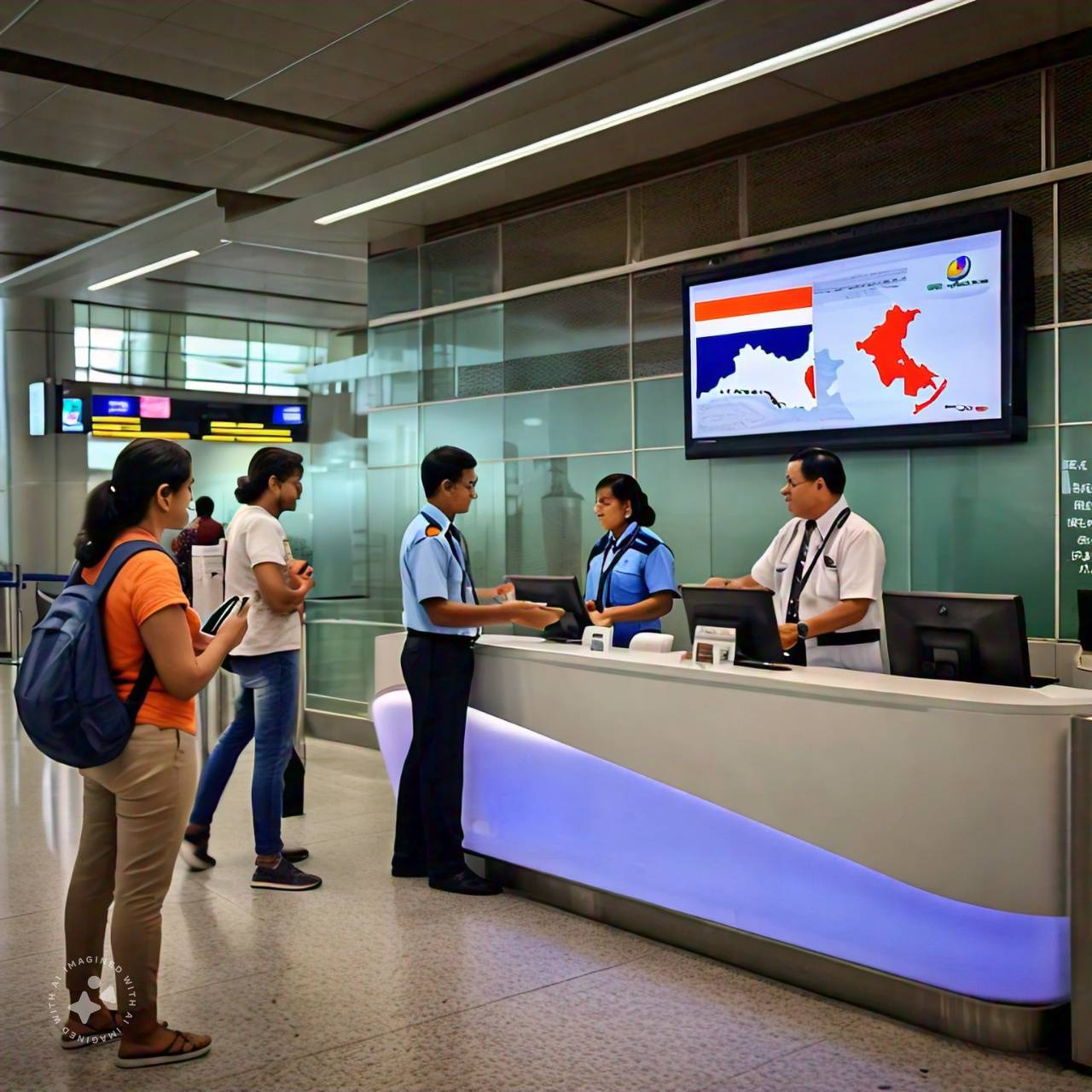Decline in Student Visas Highlights Shifts in UK Immigration Trends
The UK is witnessing a significant shift in immigration patterns, primarily due to tightened regulations surrounding student visas. New data reveals a sharp decline in the issuance of student visas, which has directly impacted international student enrollment and triggered concerns across the UK education sector.
Changing Immigration Landscape
Stricter student visa rules have reshaped the immigration trends in the UK. According to the Office for National Statistics (ONS), there has been a marked decrease in student visa approvals, significantly affecting the ability of international students to study or settle in the country.
Key Immigration Data
Between June 2023 and June 2024, the UK recorded 1.2 million immigrants:
- Non-EU Nationals: 1.03 million (86%)
- EU Nationals: 120,000 (10%)
- British Returnees: 60,000 (5%)
While non-EU immigration remains dominant, stricter policies have notably reduced student arrivals.
| Category | Figure | Percentage |
|---|---|---|
| Total Immigrants | 1.2 million | 100% |
| Non-EU Nationals | 1.03 million | 86% |
| EU Nationals | 120,000 | 10% |
| British Returnees | 60,000 | 5% |
Decline in Student and Dependent Visas
From October 2023 to September 2024, the issuance of student visas fell by 19%, dropping from 485,000 to 392,969. Dependent visas saw an even steeper decline, falling by 69% to just 46,961 during the same period.
| Visa Type | 2022-23 | 2023-24 | % Change |
|---|---|---|---|
| Student Visas | 485,000 | 392,969 | -19% |
| Dependent Visas | 151,000 | 46,961 | -69% |
Impact of New Student Visa Policies
Introduced in January 2024, the tightened visa regulations have reshaped the academic landscape:
- Restrictions on Dependents: International students can now only bring dependents if enrolled in postgraduate research programs.
- Reduced Post-Study Flexibility: Switching to work visas during studies has become more challenging, limiting options for long-term residency.
These measures have eroded confidence among international students, leading to a drop in admissions and enrollments.
Impact on Indian Students
Indian nationals have historically dominated UK student visa applications. In June 2023, they secured 142,848 visas, reflecting a 54% year-on-year increase. However, the recent policies have caused:
- A 3% decline in enrollments.
- A 30%+ drop in visa applications and Confirmation of Acceptance for Studies (CAS) issuance.
Non-EU Migration Trends
While non-EU migration continues to grow, stricter student visa rules have overshadowed the education sector's role. India remains the top contributor to migration with 240,000 immigrants, followed by Nigeria, Pakistan, and China.
| Country | Number of Immigrants |
|---|---|
| India | 240,000 |
| Nigeria | 120,000 |
| Pakistan | 101,000 |
| China | 78,000 |
| Zimbabwe | 36,000 |
Purpose of Migration
The majority of non-EU migrants entered for work, study, or asylum:
| Purpose | Number of Immigrants |
|---|---|
| Work | 417,000 |
| Study | 375,000 |
| Asylum | 84,000 |
Impact on UK Universities
The stricter visa policies have had significant consequences for UK higher education institutions. For instance:
- Enroly reported a 30% decline in deposit payments, CAS issuance, and visa applications.
- UCAS recorded a 3% drop in enrollments and a 32.55% decrease in CAS issuance for Indian students.
These statistics highlight the challenges faced by universities in attracting international students.
Navigating the Changing Landscape
Prospective students must adapt to these evolving policies to make well-informed decisions:
- Understand the New Rules: Research how restrictions on dependents and post-study work impact you.
- Consider Alternatives: Explore countries with more student-friendly visa policies for better opportunities.
- Seek Expert Guidance: Use platforms like UCAS or consult immigration experts to stay updated on visa requirements and processes.
The Bigger Picture: UK Immigration Policy Shifts
The decline in student visas aligns with the UK government’s broader strategy to manage immigration more strictly. Prime Minister Keir Starmer recently announced reforms to the points-based immigration system, emphasizing businesses' responsibility to train local workers instead of relying on foreign talent.
While these changes address public concerns about high immigration levels, sectors like education and healthcare argue they cannot function effectively without foreign workers.
Conclusion
The decline in student visa approvals marks a pivotal shift in the UK’s immigration landscape. Stricter regulations have impacted international students, with Indian and non-EU enrollments particularly affected.
To navigate these challenges, students must remain informed, explore alternative study destinations, and seek professional guidance. As the UK adjusts its immigration policies, the long-term effects on higher education and migration trends remain to be seen.


